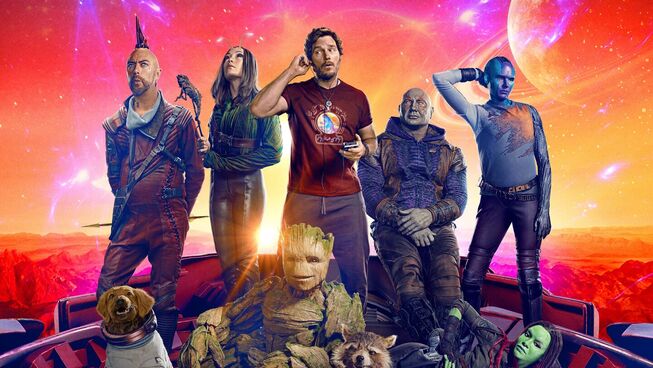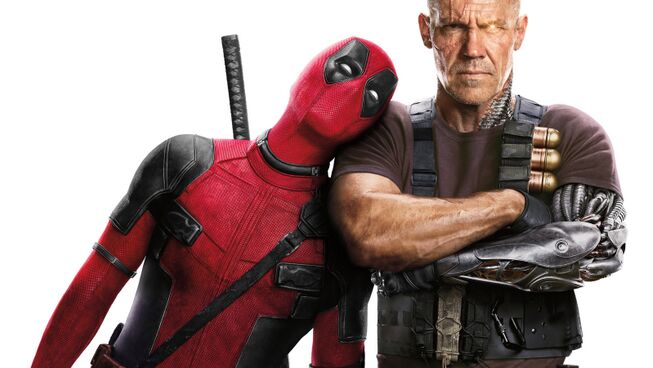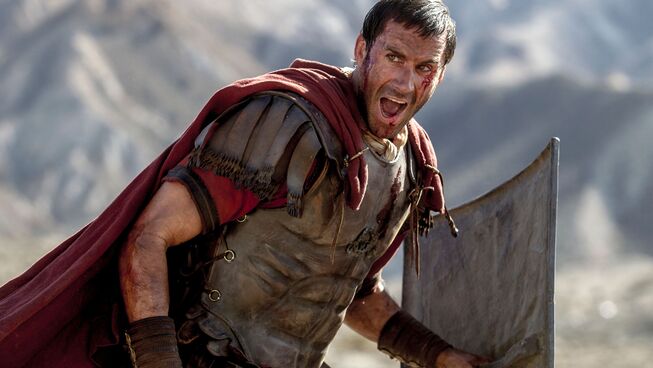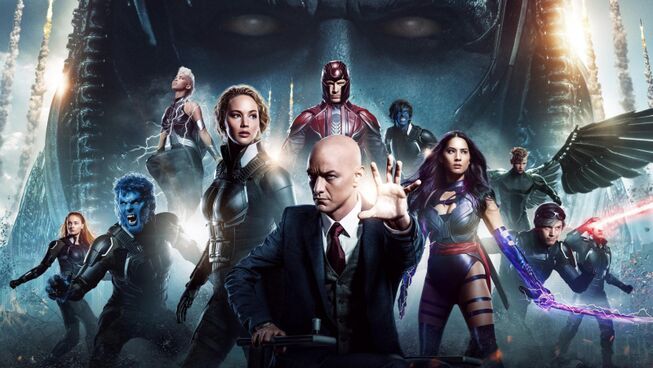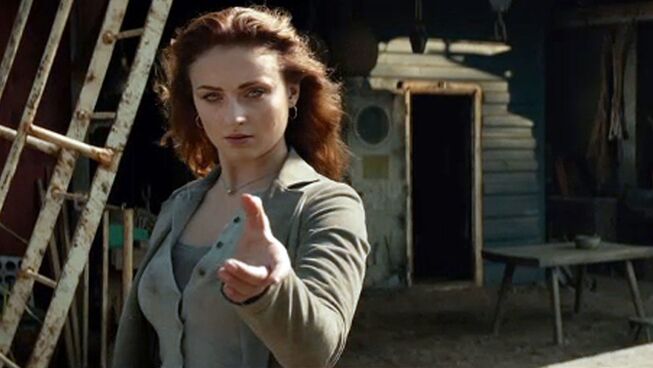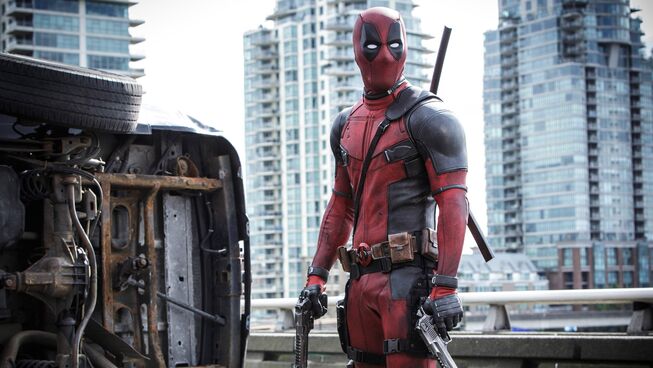
3 out of 5 stars
Crime's the disease, meet the cure. Okay, not the cure, but more like a topical ointment to reduce the swelling and itch.
Walking into the cinema...
The epitome of the anti-hero.
One thing that is expected in the super-hero film genre is the origin story. Asking the questions of how did this person get his powers and why does he fight for justice? With Deadpool (Ryan Reynolds) the first question is answered, but the second question is given a fresh spin. Before becoming the immortal being in the red suit, Wade Wilson was a fast-talking, foul-mouthed former Special Forces operative who has found the love of his life in Vanessa (Morena Baccarat). In the process of getting his life right for her sake, he finds out he has advanced terminal cancer and decides to undergo an experimental process that leaves him with accelerated healing powers. Unlike many other origin stories, this does not provide a sense of obligation to society, but an underlying feeling of revenge. Even with the healing powers, the experiment leaves him grotesquely disfigured and unable to go back to his life with Vanessa. Besides his macabre sense of humour and a hyper-active sense of revenge, Wade must determine what to do with his new found abilities. Ultimately, his sole purpose becomes to enact revenge on the pole who took away his life, even though they gave him his new powers.
Deadpool conjures up emotions of middle school. The teenage boy who dreams of being the person who has been given super strength to defeat bullies. Included in this super strength comes the enviable ability to say the right disparaging comment to any enemy on the school ground. For fans of the super-antihero, Deadpool gives permission for fans to no longer need to be good and to celebrate vengeance on those who make life difficult. He is unforgivingly abusive, graphic in his vocabulary and pornographic in his aspirations. The red-suited revenge factory is the nightmare of parents and the secret champion of teenage boys. Right or wrong, he is the epitome of what most young men desire (minus his grotesque features under the mask) to have the ability to do. If you do not believe this reality, look at the games they play on Xbox, graphic novels that they read or the YouTube videos they choose to watch.
Director Tim Miller has managed to convey the nature of the graphic novels with unabashed accuracy. The over-the-top violence, the misogynistic manner of the man behind the mask and the complete disregard to for the trappings of typical super-heroes. Miller provides an embarrassingly, enjoyable experience. The cinematoprahy and stunts rivals any super-hero film on the market. With the addition of the adult content, Miller provides the film that many young men want as they walk out of the local comic book store with the latest edition of Deadpool in a brown paper bag. Anti-societal, misogynistic and the desire to rise above their own lives situations. This film is made for the teen-aged boy and the men who continue to act like them as they take a break from playing xBox to come out to watch this film.
Even though this film seems to have the teenaged boy in mind, it is made for an adult audience with weak consciences. The violence will make some cheer with repulsive delight and cause many others to wretch from the vivid depiction of bloodshed. The language is over the top, Ryan Reynolds and T.J. Miller's characters manage to find new ways to insult society and relegate their creativity to finding new ways to express f-bombs. Finally, the treatment of women by the central character and others is demeaning and leaves them being portrayed as sexual objects or disengaged individuals who are suffering from sexual identity issues. All that being said, the quality of filming and writing delivers an original perspective on a well-worn genre. It would be a lie to not acknowledge that the film is fun, but the majority of the antics of the central character make it hard to recommend.
Reel Dialogue: What are some of the bigger questions to consider from this film?
Revenge, violence, justice, sex, language... The opportunities for consideration are plentiful in Deadpool. Trying not to 'out' myself as a prude, the question that needs to be asked, "What should we put in front of our eyes for the sake of entertainment?" This film rips open the wound that represents the desire to enjoy something that screams out for moral objection. Psalm 101:3 says, "I will refuse to look at anything vile and vulgar." When film makers add certain components of writing or imagery for realism or for the sake of artistic license there may be an excuse on their part, but where does the accountability come down to the viewer? Should I be putting graphic violence, nudity and crude language before my eyes and into my mind? The answer seems pretty obvious, but how would you answer that question? Something to consider before seeing Deadpool.
1. Is revenge ever justified?
2. Can we become better as humans?
3. Can mankind's hearts change from evil to good?
Leaving the cinema...
Funny, entertaining, but not a film that I could recommend on good conscience.


